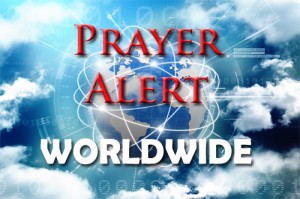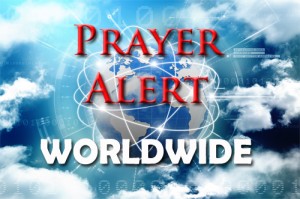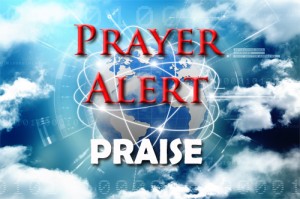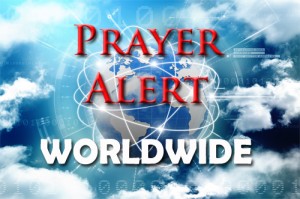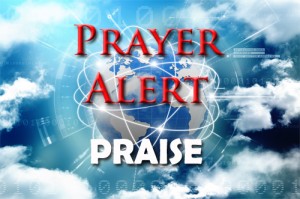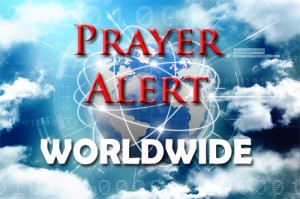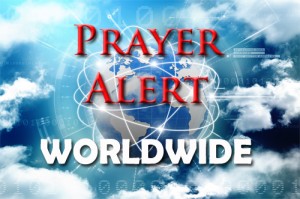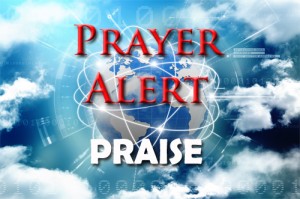Displaying items by tag: Africa
Uganda: Christian boy refuses to convert to Islam
Radical Muslims left a 12-year-old Christian boy unconscious recently, after threatening to strangle him unless he converted to Islam. Emmanuel Nyaiti was walking to his grandmother’s house 200 metres from his home in Moru village when four men ambushed him and took him to a plantation less than a mile away. The boy said he was able to identify two of the attackers. ‘Ali Lukuman tried to persuade me to become a Muslim, which I refused, and he slapped me and I started screaming’, Emmanuel said from his bed at Budaka Health Centre, his speech made difficult from strangulation. He was told, ‘If you want to stay with us in our village, then you have to become a Muslim. If not, then you have to leave.’ The assault was the latest of many which have been reported in eastern Uganda in the past six years. The country’s constitution and other laws provide for religious freedom, including the right to propagate one’s faith and convert from one faith to another. Muslims make up no more than 12 percent of the population.
Democratic Republic of Congo: UN concern before December elections
The UN has raised the alarm over fighting in eastern DRC, warning that the violence could hamper next month's elections. Leila Zerrougui, a UN special representative, said that three provinces were most at risk. ‘There is a potential for armed group interference in the elections’, she said at a UN security council meeting. The area has been troubled for decades by inter-ethnic bloodshed and militia violence, a crisis that has escalated this year. DRC is also battling the worst Ebola outbreak in its history. These factors cast a shadow over the country's ability to stage elections on 23 December to succeed President Joseph Kabila.
Cameroon: kidnapped students freed
Students kidnapped from a Christian boarding school in Cameroon's restive North-West region have been reunited with their parents amid joyful scenes. The 78 boys and girls and three others were seized early on 5 November in the region's capital, Bamenda. A driver was also freed, but the principal and a teacher are still being held. After being released, the students were taken in army vehicles back to the school, where their parents were waiting. One of those kidnapped, a 15-year-old girl, said she had been treated well, and that they had all had been given fruit, food and warm water to wash with. A separatist group which is fighting for independence for the two English-speaking regions, in a country where French is the most widely-spoken official language, has denied that it was responsible for the kidnapping.
Egypt: detention and torture
Human Rights Watch (HRW) recently published evidence suggesting that Egyptian security forces forcibly detained American taxi driver Khaled Hassan, an American-Egyptian dual citizen, and tortured him. Yet instead of supporting their call for the government to investigate, or even expressing concern, the state information service denied any wrongdoing and continues to undermine the work of HRW and similar groups. The National Security Agency seized Hassan in January and presented him to prosecutors in May. In the intervening months he was beaten, subjected to prolonged stress positions, tortured with electric shocks, and raped twice. Forensic experts reviewing photos of his wounds said they were consistent with torture. During his disappearance, Hassan’s family filed many complaints with the authorities but received no information on his whereabouts. Torture and enforced disappearance are crimes under international and Egyptian law.
Angola and Rwanda: churches closed
The Angolan government has put 1,106 churches on notice for operating illegally. The director for religious matters said they had been given a 30-day ultimatum from 4 October to regularise their operations or be shut. The number of illegal churches in the country has reached 4,000, and they need to change their status. According to the culture ministry, there are only 84 legal churches, and apart from the 1,106 churches on notice another 2,006 have already been shut. Pray for freedom of religion, and for legislation only to be applied where necessary. Meanwhile in Rwanda, where 81% of the population are believers, the government has closed 8,000 churches, believed to have ‘untrained leaders and poor accountability’, with pastors being accused of enriching themselves financially. Pray for the government to eradicate mental, spiritual and financial abuse by leaders and promote safe building standards for church structures. See
Nigeria: aid workers killed, hostages held
Hauwa Liman, a midwife with the International Committee of the Red Cross (ICRC), was killed days after her kidnappers set a deadline. Ms Liman was taken with two others in the northern town of Rann last March. Fellow-midwife Saifura Ahmed Khorsa was killed last month. Ms Loksha remains a hostage. A 15-year-old schoolgirl is also still being held by the same group, which is affiliated to a faction of Boko Haram. Most of the other 110 students who were kidnapped have now been freed but the girl, who reportedly refused to convert to Islam, remains in captivity. The ICRC's regional director said there was no justification for the execution of innocent young healthcare workers, and feared for its implication on their work in the region. The information and culture minister said that the government would ‘keep the negotiations open’ and continue to work to free Ms Loksha and the schoolgirl. Pray for this work.
One thousand New Testament translations!
The thousandth New Testament translation, completed with involvement from SIL and Wycliffe Bible Translators, was launched on 11 August in a celebration in northwest Uganda. The translation is for the Keliko people and represents the first time they can hear and read the New Testament in their own language. The Keliko, whose homeland is in South Sudan, travelled from all around to be present. Many came from local refugee camps in Uganda; others hitched rides from South Sudan and the Democratic Republic of the Congo. The event was attended by church leaders and local government dignitaries, as well as by international visitors from across Africa, Europe and North America. The translation represents a triumph over adversity. Twice translation efforts were interrupted by civil war. The translators are Episcopalian pastors, very godly men, and they pressed on. Although SIL provided technical and advisory support throughout, this project belongs to the Keliko church.
Nigeria: action needed
Reconciliation seems far away between Christian farmers and Muslim herdsmen in Nigeria’s middle belt areas. Christians fled to Plateau and Benue states because of discrimination and attacks from Boko Haram in the north,but now they are being killed and having their homes torched by Muslim Fulani herdsmen. Over 56 villages have been attacked this year, three in the past week. It is a religious battle and a battle over land. There is no reconciliation in sight, and the attitude of government is not helping. Governments should protect their people, but this government has allowed the people to be continuously attacked. Some Christians are having their faith eroded, while many are holding on trusting in God. A local farmer said, ‘We believe God will come through for the church as believers stand with us worldwide in prayer - He will sort out these issues’. Pray for those carrying the burden of housing people who have fled persecution.
South Africa: ‘Uprising’
A youth prayer movement is springing up in the nations, and South Africa’s ‘Uprising’ event (4 to 6 October) is about to ignite the spiritual atmosphere over South Africa. Their website states, ‘We, the youth, are saying that we are uniting in prayer, rising as a body of young people, forming a revival wave, taking a stand, marching to the gates of Hell to give the devil back his surname and take our identity back. Black or white, every tribe, we are putting our differences aside and praying non-stop with every young person across South Africa, Africa and around the world, because where there is united prayer (Psalm 133:1-3) God is present, and where God is, there is hope, love, transformation and honour.’ We can ask God to protect all delegates travelling to the event, and for the strength and stamina of organisers and speakers. Pray for consistent electricity and internet supplies into the venue to enable clear, far-reaching teaching and fluid unbroken worship.
Ghana: rescued from slavery
Kofi was eight years old when his mother introduced him to a nice man who told them he would take Kofi to live with him and enrol him in school, giving him the future his mother couldn’t give him. It was all a lie. For two years, Kofi was a slave to a boatmaster on Lake Volta in east Ghana. He woke at dawn to dive deep into the lake, holding his breath as he used his small fingers to untangle the nets caught on underwater tree stumps. He knew some boys drowned doing this. One day a strange boat pulled near. He knew it was different from others he’d been on when someone handed him a lifejacket to ensure he was safe. The boat was filled with police and IJM workers. Pray that IJM fulfils its plan to ‘eliminate the slave trade everywhere’.
